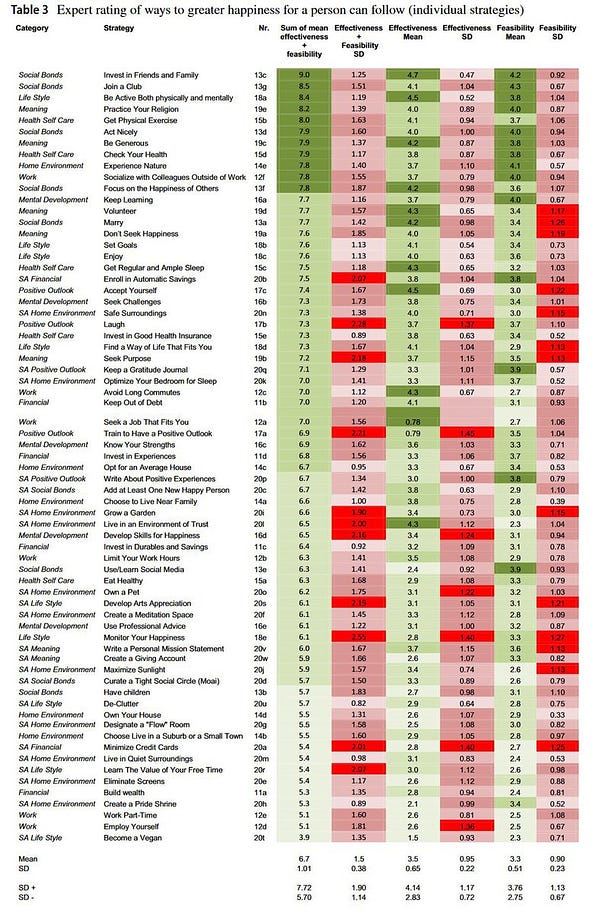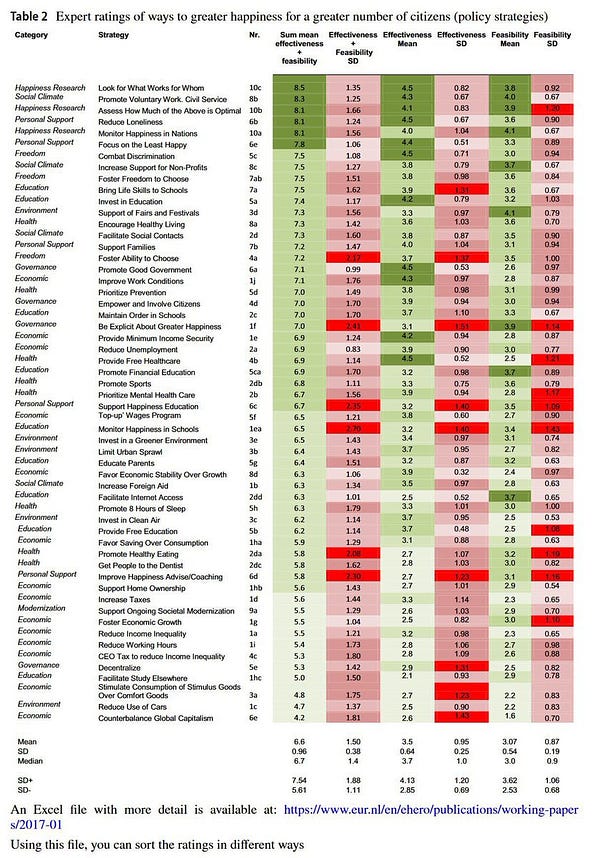The end of the world (pass the remote)
You’d think a death-drive was gripping Hollywood this Xmas. Actually, it might be a life-drive. Just in time.
I, too, have recently found myself at the end of a full day of competitive eating, surrounded by beloved family in a darkened room, drowsily reaching for the two obvious Big Movies to round off the potlatch.
Yet by the end of both, I was tapping notes furiously into my smartphone. Our entertainments contain portents, longings, warnings. We sometimes just have to note them as they arise.
So, first night, No Time To Die. Second night, Don’t Look Up. The world temporarily saved, the world entirely lost. Before making any other reading, you wonder what kind of creature we are, that can toy so elaborately and intricately with the prospect of self-annihilation. As I watched, Sigmund Freud’s idea that humans had a death-drive - to complement their sex-drive - came irresistibly to mind
In my recent readings across the science of emotions, there has been a refresh of Freud’s notion. The neuropsychoanalyst Mark Solms suggests variously that Freud misnamed what is a more constructive process in humans. We might indeed crave the cessation of our appetites—but as a goal (maybe unattainable) of survival. We seek a state of being where all our dissatisfactions are answered.
This precisely isn’t a death-drive, says Solms—meaning some deep urge for us to return to nothingness. Instead, it’s a “life-drive”. We are anticipating what it might feel like to be a organism that lives in a balanced state (or “homeostasis”, to use his and Antonio Damasio’s term).
It’s a nice reframing. I imagine it might help to lighten up some therapeutic situations. But when Hollywood goes there… (Of course there’s spoilers to come. Jump off now if you need to). It seems possible for the dream factory to put a yearning, creative life-drive at the service of an out-and-out death-drive.
The closing scenes of Don’t Look Up are a celebration of some of these deepest forms of homeostasis. Kin and friends sit round a feasting table, sharing intimacies and memories… And then the annihilating shockwave of the crashed asteroid starts to disintegrate the very walls of the home around them.
At the end of No Time To Die, Bond waits for death beneath a rain of British missiles, streaking to destroy a facility for bio-weapons. These weapons are able to target humans at the genomic level, whether unique individuals, shared skin pigmentations—choose your bio-horror. Yet as the story is at pains to remind us, the British security state has created these very weapons in the first place.
What does it mean that some of our most popular entertainments simulate either skating to the brink of total apocalypse, tipping right over it, or sometimes reversing out of disaster? If Solms and Antonio Damasio are right, then the satisfactions of such storytelling are that they are rehearsals of our near-success, or near-failure, to utterly destroy ourselves. From seeing these rehearsals, we may go forth and act as better, wiser, less self-terminating citizens.
There’s that old Edgar line from King Lear: “the worst is not so long as we can say, ‘This is the worst.’” Meaning: if we’re still alive and sentient enough to imagine alternatives, even in the grimmest circumstances, then we may yet pursue alternatives.
For days, I was dumbstruck at the sensuous and universal annihilation of half the living universe, by a sovereign Than[at]os in Avengers: Infinity War. So it was a delight to find a dashed-off Tweet thread that presented a knockdown argument against Thanos’s Malthusian cruelty.
Essentially this: Thanos has ultimate power over matter, and wants to bring peace and harmony to a limited universe. His monstrous solution is to reduce by half the grasping mouths (or tendrils) of that universe. The tweet asks: why doesn’t Thanos just use the same materialist power to double the available resources in an expanded universe, thus banishing scarcity for the same amount of mouths (or tendrils)? As Shakespeare didn’t say: “This is the worst…so shall we try something else?”
This is a death-drive definitively recast as a life-drive. And the tools of that life-drive seems to be ingenuity and imagination (whether operating inside a film, or as a response to it). When we step into the realm of “as-if”, we can create the possibility (though certainly not the guarantee) of an escape from the choking, auto-destructive niches that humanity finds itself in.
To my delight (as a long-standing advocate of the phenomenon), Solms and Damasio (and their peer, the late Jaak Panksepp) directly name this drive as PLAY. The “latent biological purpose” of play’s “as-if-ness”, as Solms puts it, is to practice what happens when instinctual drives like rage, lust, care, fear really guide our reactions to the world. (Play stops when its rehearsal of these primal emotions becomes real).
The playfulness of this - the joy we take in new, recombined and exaggerated semiotic forms, forged with others - may seem most obviously pursued in a broad satire like Don’t Look Up. Meryl Streep’s US President manages to morph Hilary Clinton, Sarah Palin and Donald Trump together. The vocabulary of populist movements, and the antics of trivialising media, are only mildly exaggerated. They show how mass denial of extermination - even as the exterminating object streaks across the night-sky - is all too credible (obviously analogous to denialism in climate breakdown).
The reality - the total failure of a rationalist public sphere to guide us to safety - is abrasively close to the playing-with-reality. Out of this humorous discomfort, Don’t Look Up clearly wants to incite a reformist desire in you, for better media and more informed collective discourse. Does it work on you that way? Let me know (I have my doubts about this further down the piece).
There is more than enough playfulness in the Bond franchise. Such high jinks serve a clear homeostatic end, an obvious craving for restored balance - which is the post-imperial longing for a Britain with global status.
Bond is some “agent” of that status, though: a priapic, hard-drinking, rule-breaking maverick and killer. His country’s capacity for innovation is mostly reduced to offensive and defensive gadgets, as Bond faces villains with systemic or globalist ambitions. Somehow, their balloons of world domination are punctured by Bond’s freelancing and buccaneering, in the interstices of the world.
Again, drawing on the Lear line (and lineage), “the worst” is said in No Time To Die, amidst 007’s cine-play. Perhaps, as Edgar advises, so that we can know the worst better.
The baddie, Safin, is a notably fluent fascist. He wishes to use his ultimate bio-deterrent to answer what he sees as populations’ desire for “oblivion” (expressed as “we all want to be told how to live”). These masses “would like to die when they don’t see it coming” (as opposed to, one assumes, embracing your death wide-eyed, as in a warrior cult).
This is an ideological statement—the upside down of reality. It gives totalitarianism a middle-eastern identity, exactly just as Johnson’s Brexeptionalist government takes away our rights of citizenship and protest. The pleasures of assuaging this Anglo-America anxiety about the authoritarian potentials of our own out-of-control elites, by projecting anti-democratic intent onto an Arabic/North African Other, shouldn’t be underestimated. Post-imperial fantasy always seeks to re-establish an old balance/homeostasis, when it faces a demanding new reality.
Yet it couldn’t be said that Daniel Craig’s Bond run was in any way lacking in irony, or even awareness of hubris. The opening credits to the current movie include a rusted, undersea Britannia, being sucked into the sands of a hourglass.
As my family and I tumbled from our sedentary positions at the end of both movies, I wondered - as me and my colleagues in The Alternative UK often do - whether a media system, even in its entertainment narratives, can afford to peddle mere irony or satire anymore.
At the very least, one asks of Don’t Look Up: where is the interactive and activist structure around this movie - one that “converts” (as the marketers put it) our enjoyment into support for, or commitment to, a better media structure? One that informs and activates us as citizens of an ecological crisis? The official site is an inert, typically corporatised page. And then you realise… it’s on Netflix. Whose biggest self-declared competitor is “human sleep”.
Herbert Marcuse once wrote a famous paper on repressive tolerance. Some of its words (with pronouns amended for their sexism) seem relevant here:
The conditions under which tolerance can again become a liberating and humanizing force have still to be created. When tolerance mainly serves the protection and preservation of a repressive society, when it serves to neutralize opposition and to render humans against other and better forms of life [my emphasis], then tolerance has been perverted.
And when this perversion starts in the mind of individuals, in their consciousness, their needs, when heteronomous interests occupy them before they can experience their servitude [my emphasis] then the efforts to counteract this dehumanisation must begin at the place of entrance, there where the false consciousness takes form (or rather: is systematically formed) — it must begin with stopping the words and images which feed this consciousness…
Or if “stopping” is too much to ask at Xmas, then at least (as we hazily rise to our feet), we can be aware of the subtle ways that “heteronomous interests” have occupied us, by means of star-laden blockbusters from super-informed media giants. And wondering whether we can start, in 2022, to imagine the end of any current and locked-in societal arrangement, before we can imagine the end of the world.
[To concede: Don’t Look Up does imagine a second future for humanity, 25 thousand years later. It doesn’t last too long. I need considerably more optimism next year than this, please, content makers.]
LINKTOPIA
When the sky falls











As ever, would love to hear your responses in the comment space below. Have a coruscating New Year! - PK




